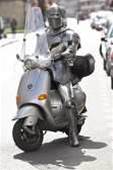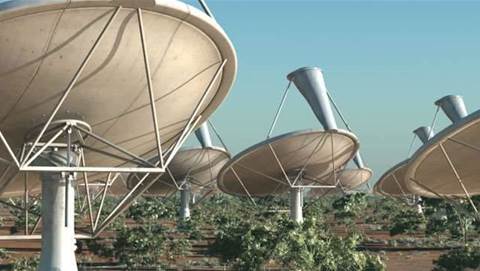
Cash prizes of $2m, $1m and $500,000 are up for grabs for the first, second and third-placed teams.
The competition is an extension of the earlier Darpa challenge involving a 142-mile course over desert and scrubland completed in under eight hours.
"The Urban Challenge is quickly approaching," said Dr Norman Whitaker, Urban Challenge programme manager at Darpa.
"With less than a year until the National Qualification Event, teams will soon begin road-testing their vehicles."
The first ever robotic car challenge was a wash out, and none of the cars made it more than seven miles without crashing. Some of the entrants made it less than a mile.
The winner was a Volkswagen Touareg run by a team from Stanford. The university is entering a care this year dubbed 'Junior', after Stanford's namesake Leland Stanford Jr.
"In the last Grand Challenge, it did not really matter whether an obstacle was a rock or a bush because either way you would just drive round it," said Sebastian Thrun, an associate professor of computer science and electrical engineering at Stanford.
"The current challenge is to move from just sensing the environment to understanding the environment."
The goal of both challenges is to automate systems for military and commercial use. The US Army wants a quarter of its transport division automated by 2030.



_(23).jpg&h=140&w=231&c=1&s=0)
.png&h=140&w=231&c=1&s=0)





 iTnews Executive Retreat - Security Leaders Edition
iTnews Executive Retreat - Security Leaders Edition
 Huntress + Eftsure Virtual Event -Fighting A New Frontier of Cyber-Fraud: How Leaders Can Work Together
Huntress + Eftsure Virtual Event -Fighting A New Frontier of Cyber-Fraud: How Leaders Can Work Together
 iTnews Cloud Covered Breakfast Summit
iTnews Cloud Covered Breakfast Summit
 Melbourne Cloud & Datacenter Convention 2026
Melbourne Cloud & Datacenter Convention 2026
 The 2026 iAwards
The 2026 iAwards











_(1).jpg&h=140&w=231&c=1&s=0)



